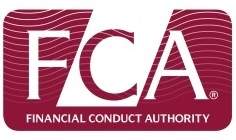
The ‘remorseless march’ of technology is posing questions for the Financial Conduct Authority (FCA), FCA chairman John Griffith-Jones told MBA students at a speech he made to Cambridge Judge Business School.
In the speech, he noted that rules designed for the paperwork era do not necessarily work for the online one.
As an example Griffith-Jones noted the distinction between advice and guidance is becoming greyer with the advent of platforms and the potential of robo-advice.
The pace of change for tech has led to some consumers falling behind in some respects compared to others.
Griffith-Jones noted: “Our children’s knowledge of cheques stretches little further than Christmas presents from grandparents. Many of them are uncomfortable with online banking.”
Griffith-Jones admitted there is no ‘silver bullet’ for this state of affairs, but said the FCA was seeking to embrace technical developments through its Project Innovate and Sandbox initiatives. “We have come to realise that the more detailed regulation that we have the greater is the challenge of keeping it all current.”
Risk tolerance and policy
In 2015 and 2016, the Government, was accused by some of interfering with the FCA, with the regulator at one point being described as ‘neutered’.
However Griffith-Jones said the FCA remained capable and willing to draw the government’s attention to the consequences of policy change, even though he admitted policy is for elected government not the regulator.
“Experience tells us the regulation acts most effectively as a support for government policy not a substitute,” he said, adding: “It also makes clear that regulation cannot be independent of government, although regulators most certainly should be in discharging their duties.”
Griffith-Jones’ speech also touched upon an acknowledgement that FCA rules will be broken periodically. For some regulation there is a natural zero tolerance regime, he said, listing air traffic and nuclear power safety as examples. This isn’t the case for conduct regulation.
Attempts to quantify ‘acceptable’ detriment, i.e. typically numbers of people affected or amounts involved, isn’t satisfactory to those who are disadvantaged by rule breakers.
“The approach adopted by the FCA has evolved over its short four year life, but there is more debate to be had. In essence, we have to distinguish between ex ante and ex post,” Griffith-Jones suggested.
Overall, Griffith-Jones noted the separation of the old FSA into its two component parts has had the consequence of giving conduct regulation a status and focus it previously did not have.
Griffith-Jones concluded: “Unlike the prudential environment there is a relative dearth of academic research into what works best. Not surprisingly, the building blocks that I have described tonight were not sitting in some intellectual builder's yard pre hewn to exactly the right dimensions.”
“There is still, in my opinion, some way to go before we get them all where they need to be. We should also be cognisant of the fact that success is not siloed into these five compartments. Regulators need no reminding that we are only as good as our weakest link. Rome may not have been built in a day, but built it was. We should be ambitious for our future, if a little patient with our rate of progress.”







